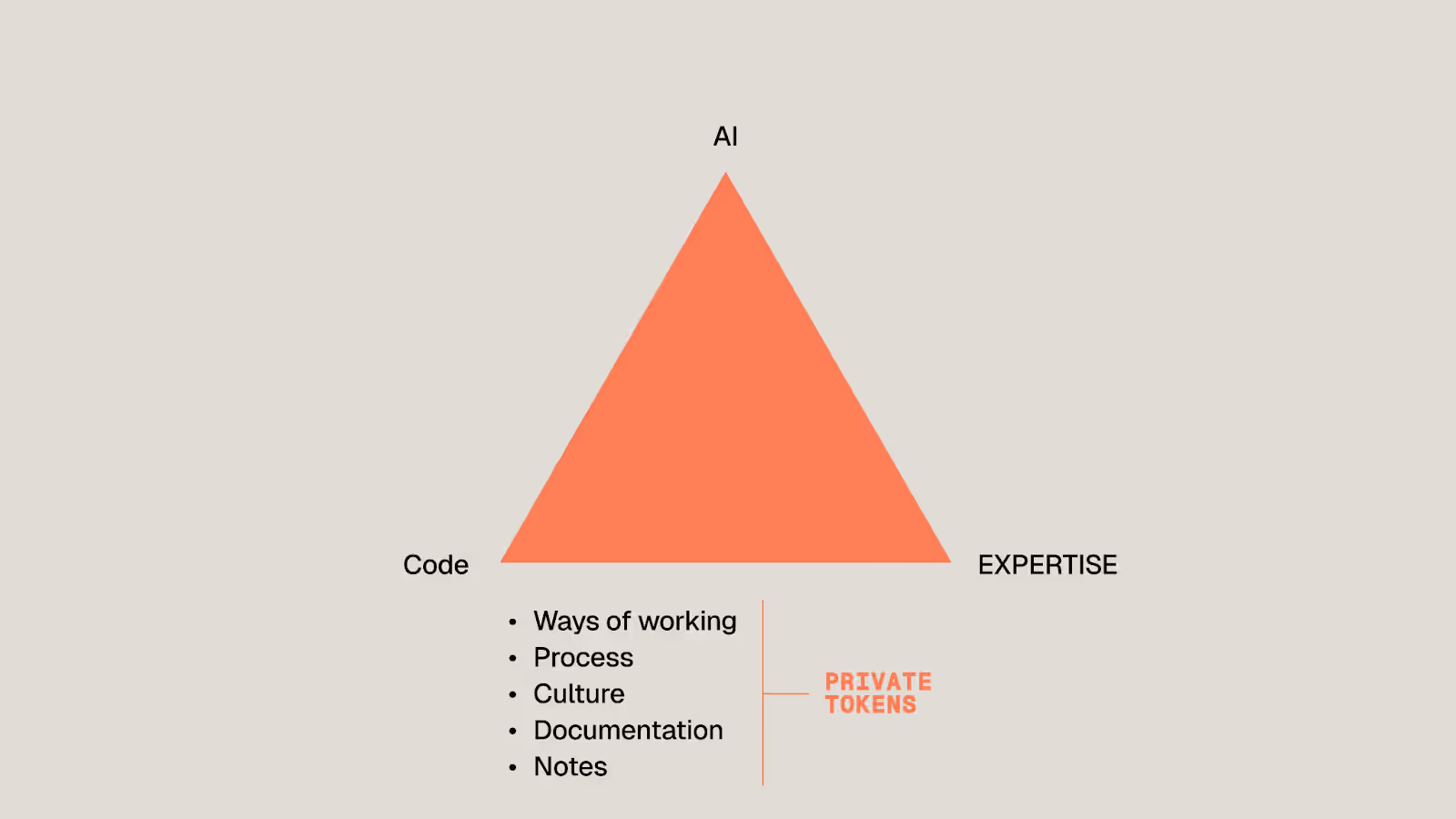Private Tokens
Proprietary organizational data and institutional knowledge that cannot be replicated by competitors or accessed by generic AI systems. Private tokens encompass four key categories: conversational data (such as sales calls and support interactions), internal documentation (including strategy documents and playbooks), digital communications (like email threads and Slack messages), and tribal wisdom (encompassing unwritten rules and cultural knowledge). For marketing leaders, private tokens represent the "secret sauce" that transforms commodity AI into competitive advantage—your customer insights, brand voice patterns, successful campaign data, and market positioning strategies. When integrated into custom AI systems, private tokens enable marketing automation that understands your business context, delivering personalized customer experiences and strategic insights unavailable to organizations relying solely on public AI training data.

Referenced in these posts:
Documentation as a Strategic Asset
Documentation turns tacit knowledge into a strategic asset that scales communication, preserves institutional memory, and becomes the training data powering custom AI solutions. By making it context-fit, concise, visual, skimmable, current, and discoverable—and extending its depth for AI-native use—organizations convert unique insights into lasting competitive advantages.
Don’t Let SaaS Train on Your Private Tokens
Don't let SaaS solutions train on your unique competitive advantage and protect your company's unique IP by building your own custom AI.
The SaaS Industrial Complex: When Their Mirror Becomes Your Mold
Just as Eisenhower warned of a powerful military-industrial alliance and Conway observed that systems mirror their creators’ communication structures, today’s sprawling SaaS ecosystem quietly imposes vendor-defined processes on every company. By harnessing AI and proprietary “private tokens,” enterprises can escape this one-size-fits-all mold and build software that truly reflects their unique DNA and strategic edge.
Transformers are Eating the World
Reflecting on three years of AI adoption, this talk emphasizes that transformative technologies like transformers are still in their infancy, requiring hands-on exploration and healthy skepticism toward confident predictions. It argues that AI acts more as a mirror—revealing our own organizational patterns and biases—than a crystal ball for the future.
Related terms:
Conway's Law
Conway’s Law states that organizations designing systems are constrained to produce designs mirroring their own communication structures. For example, separate sales, marketing, and support teams often yield a website organized into Shop, Learn, and Support sections—reflecting internal divisions rather than user needs.
WWGPTD
WWGPTD began as internal Slack shorthand to remind teams that using AI isn’t cheating but the essential first step. The accompanying bracelets serve to normalize AI as a fundamental tool for creating better work.